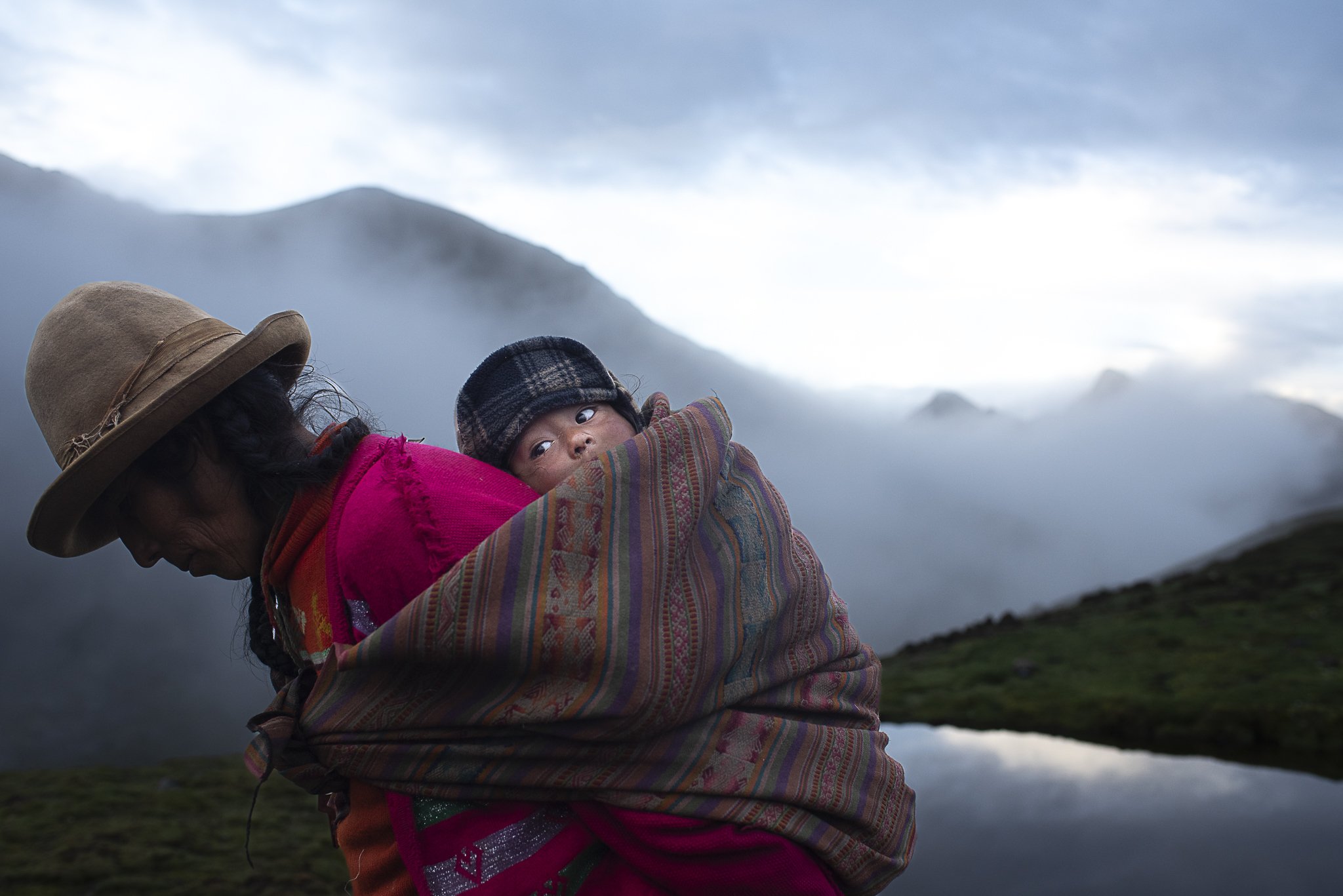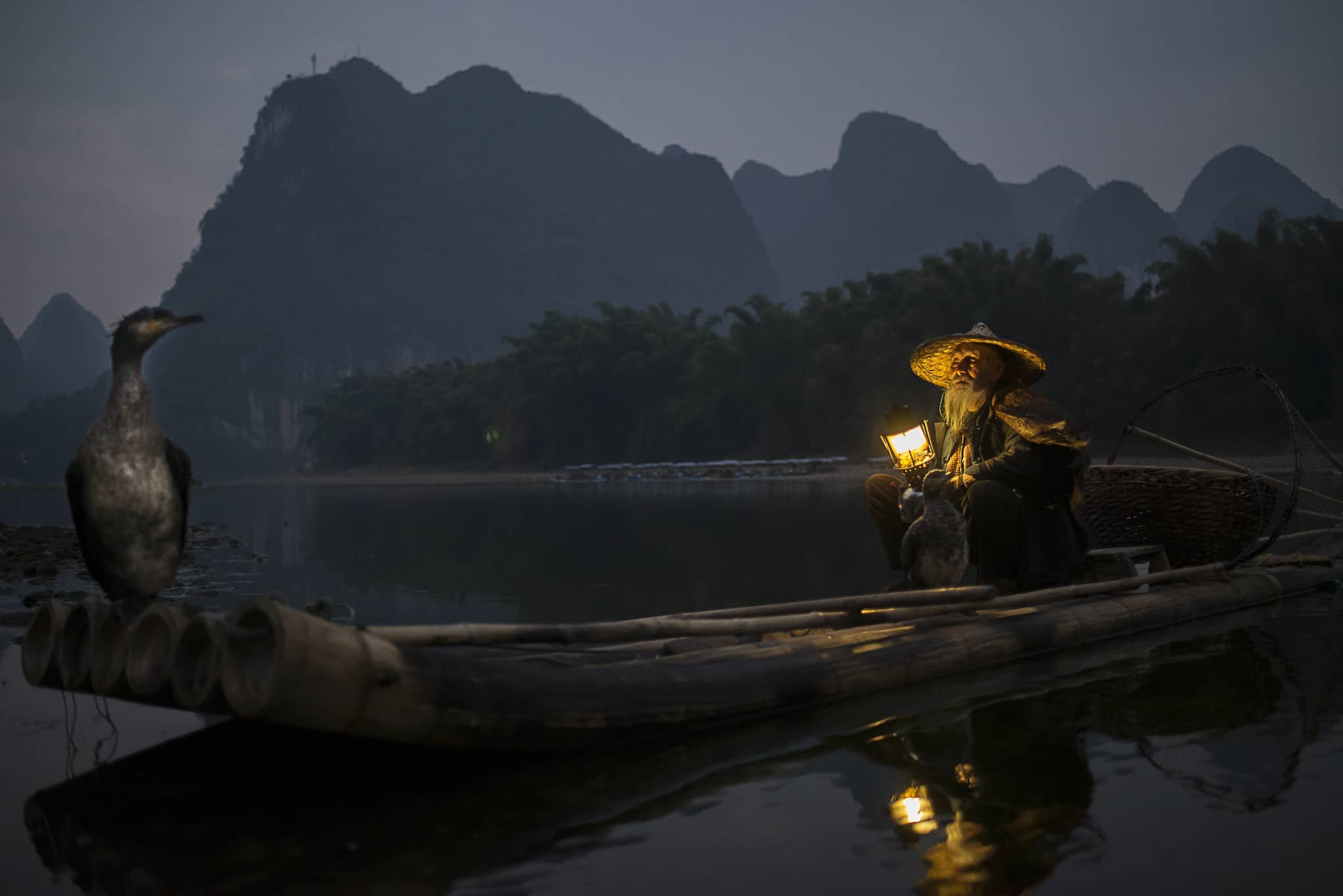Ilaria Miani: Exploring Humanity Through Photography
Congratulations to Ilaria Miani for earning her place as a Winner in the Boynes Monthly Art Award [January 2024 Edition]!
Who are you?
I would like to introduce myself as Ilaria, an amateur photographer, always tirelessly searching to catch that unfathomable, beautiful, timeless decisive moment.
I don't remember the first time I held a camera in my hands, but I most definitely remember the two key moments when I experienced the magic of photography. The first time was in my brother's dark room, and I was really just a child, and then later, as a teenager, when my father took me to a National Geographic photo exhibition in Rome. After that, I had no choice, photography has definitely become my world. From that moment on I've had the opportunity to live very different experiences, and over the years I've tested myself, trying to find my personal feeling, my own sense of style in my photography, and I am still working on that.
“Here Is My Son”
Photography
By Ilaria Miani
Zanskar Valley, Ladakh (India). On the way to Padum, we met a family of shepherds encamped on a plateau. Intrigued, we stopped and very naturally, the shepherds welcomed us and began to communicate with us. A lady beckoned me to follow her and led me to her tent. She picked up a very blond child, placed it proudly on her lap and motioned for me to photograph her with her baby. At that moment, I was photographing a queen.
WHAT INSPIRED YOU TO UTILIZE photography AS A MEDIUM?
Photos have always fascinated me, most of all old photos, or portraits. Every single pics is a book that tell you a story, the plot is made by every single little details: an expression, or some deep wrinkles, rough hands, a particular dress, a jewel, or the body posture; every details tell you a part of the story on which the photographer is the storyteller.
“Playing With Light”
Photography
By Ilaria Miani
Bagan Valley, Myanmar. In one of the old pagoda, we met a little group of monks. The one in the picture was the youngest, and very bored. There was a ray of light that came from a window of the pagoda, a very special light, and suddenly he become to move slowly his hand, like he was following a music. For just one moment I feel the same music.
How would you describe your ARTwork?
In these years, and picture by picture one by one I have acquired an awareness of how an image can be important because it has the power to provide documentary evidence of our lives, an instrument to inspect our common humanity. Much more powerful because each frame is a human being squared: in each image there is not just what I see, but how I see it with all my emotions, background, feeling, happiness, sadness, culture, knowledge, experiences, lack of experiences. This is why photography is unique. And It is with this belief that I took photos.
“Searching The Light”
Photography
By Ilaria Miani
Province of Guangxi, China. In a little village, this woman invited me to step in her house. A tiny, dark, spare house with the wall darked by the burning of a wooden stove, and with just a window from where the weak light of a cloudy day came in. The old lady while we were trying to speak bend toward the light as for get some kind of inspiration finding the right word that we both could understand.
Can you discuss the inspiration and thought process behind your winning work?
My winning work is about Q’eros people. Q’eros people are known as the keepers of ancient knowledge and are widely known as the last living direct descendants of the Incas. They live in remote villages on Andine mountains located at an altitude of up to 5.000 mt above the sea level. Their main source of sustenance consists of potatoes, and raise alpacas, but living in their villages has become harder than ever, since the ground being too infertile to make a profit from growing crops, and the climate changes had altering the cycle of the seasons, and the terrains are subjects to violent storms just as to great drought.
It was important to me to highlight the hardship, the strength, and the faith that is required to these people to carry on their lives. I was walking in a little village, and the image of a leaning woman carrying on her shoulders a baby, was the answer I was looking for.
“Carrying on”
Photography
By Ilaria Miani
Can you talk about your biggest learning experience during the process of creating your work?
I owe my learning experience lesson to my friend and Italian great photographer, Fabio Moscatelli. He taught me that first of all every photograph project takes place before the shooting. The project should be prepared in advance, it takes time, and effort because you have to be focused on what you want to communicate with your work. This was a great lesson to me because I wasn't used to preparing my project, because I believed that planning could, in a certain way, destroy my creativity, without understanding that creativity is a process present all the way through, and not just at the moment of the shooting.
“The Cook”
Photography
By Ilaria Miani
Wakhan Corridor, Afghanistan. In every Afghan home there is an oven, always on. It serves as heating and for cooking and the bread never fails. It is delicious bread and is always offered to guests, even if it is the only thing they could have to eat.
Can you discuss your biggest success since starting your artistic journey?
I consider my one year long project “The Chant and the roses' ' a great success of mine. It was my first planned project, and it is a report about the cloistered nuns of the Monastery of Saint Cecilia. It is a success to me because I built it piece by piece, searching to get in connection with the nuns, gaining their trust, live with them, trying to exceed myself and never give up on taking pictures again and again, in order to achieve the best result ever in representing their habits, the hard work they do each day, and the timeless atmosphere that surround the monastery with its walls marked by time. The “Chant and the roses' ' has become a book, and I am proud of the work I have done, with myself and with the nuns.
“The Eldest”
Photography
By Ilaria Miani
Pakistan. In a Kalash village women are the heart of the village life. They work in the field, at home, they take care of the children, a hard life that leave marks.
Can you give us a piece of advice you wish you had known at the start of your career?
I have only quite recently approached to portraits, that’s because I had the belief that taking a portrait of a person means to show off her/his soul, and as a photographer or do you have this ability or it is better do not attempt to portrait at all. I was pretty sure I hadn’t had the right quality as long as I haven’t met a great Italian portrait photographer, Efrem Raimondi, that changed my world. Portrait has nothing to do with the soul of the subject, a portrait just give back the point of view of the photographer on the subject, that’s all. So, I put my uncertainty aside, and finally started to enjoy portraying.
“The Fisherman”
Photography
By Ilaria Miani
Province of Guangxi, China. Fishermen along the Lijiang river use cormorants to catch their prey. They go out early in the morning and after several hours spent working, they allow themselves a little rest by smoking and contemplating the landscape that surrounds them.
What is your dream project or piece you hope to accomplish?
Mankind, also in the worst possible situation such as in a war or in a refugee camp, has the will to restore a situation as close to the old normality. I would like to document with my pictures this strength, this innate spirit of survival, which always leads man, despite everything, to make hope win instead of desperation, to make life prevail instead of death.
“The Smoker”
Photography
By Ilaria Miani
Mindat Region, Myanmar. In the Mindat region, older women have a tattoo on their face. Today, tattooing the face of women is a forbidden practice, so they remain the last evidence of this ancient tradition.
As a winner, do you have any advice for artists who want to submit to awards, competitions, residencies, etc.?
Not all the competition worth, or are suitable for your artwork, choose carefully the ones you submit to.
“The Wakhi Gentleman”
Photography
By Ilaria Miani
Wakhan Corridor, Afghanistan. In Afghanistan, welcoming guests is sacred. There is no village where you are not invited to enter the houses and get to know the whole family. This gentleman, in particular, proved to be among the most welcoming and at the same time, among the most shy wakhi I met during my trip, but in the end I managed to get a smile from him.
Lastly, I like to ask everyone what advice they would give to their fellow artists, what is your advice?
Never stop being curious, observe, don’t be shy, talk to people, study the masterpieces of classic photographers as well as those of today, be open minded, do experience, and remember they can be positive or negative, but both are useful.
To view more of Ilaria Miani








